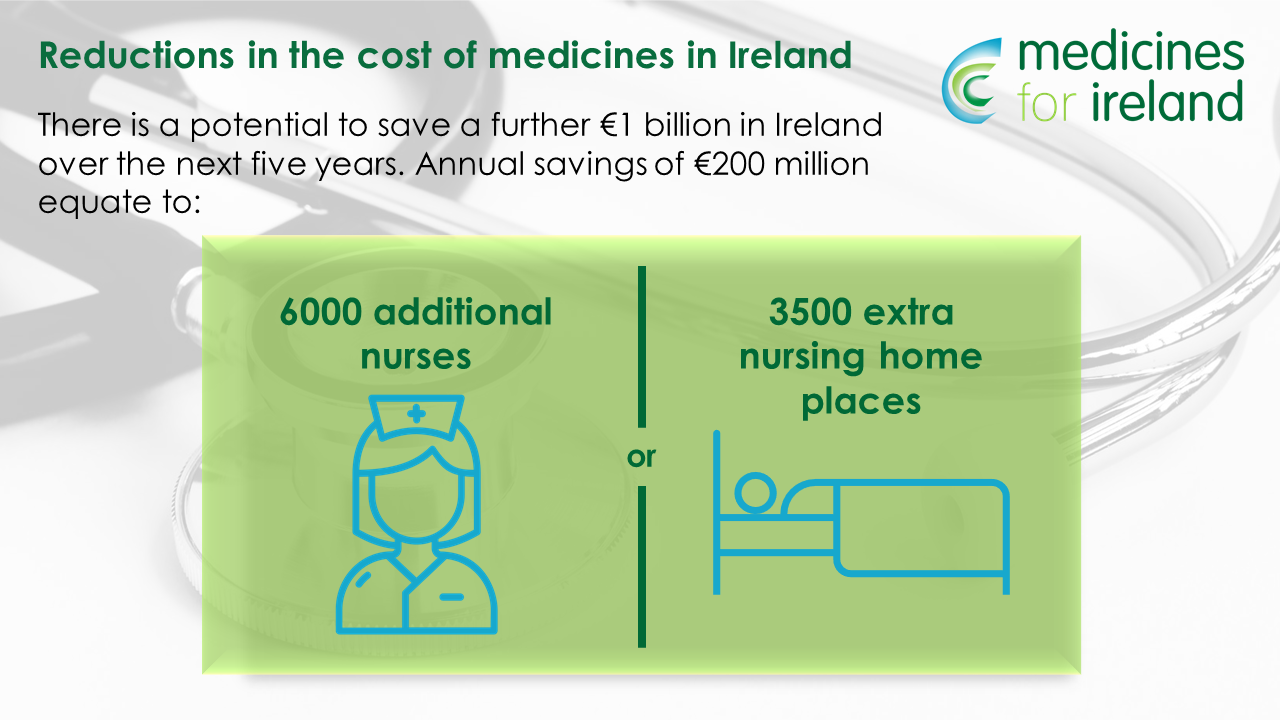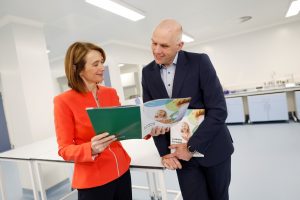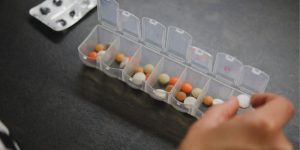Medicines for Ireland (MFI), the Irish pharmaceutical trade association and the supplier of the majority of medicines in Ireland, have launched ‘Reductions in the Cost of Medicines’, a report outlining how the Government can achieve a national saving of up to €1 billion over the next five years by switching to generic and biosimilar medicines. To put into context, €200 million of additional saving per annum could be redirected towards additional HSE resources, paying for 6,000 additional nurses or 3,500 extra nursing home beds.
Commenting on the report which was shared with Oireachtas members, Chair of Medicines for Ireland, David Delaney said: “It is well recognised by the HSE and the Department of Health that the increased use of generic medicines has delivered €1.6 billion in savings to the Irish health system since 2013. These savings have been delivered by the members of MFI who supply the majority of medicines to the HSE and to patients directly.
“Covid-19 has placed added pressure on an already over-stretched health system. The policy proposals set out in this report outline the opportunity for Government to free up significant HSE resources by avoiding an annual spend of hundreds of millions of euro on high cost patented medicines. Over the last decade, the increased use of generic medicines in Ireland has helped dramatically reduce the cost of everyday health care. These reductions have helped families across the county access a greater range of medicines due to generic competition. While this has resulted in the era of the big brand being dealt a blow, an increased use of generic and biosimilar medicines will help protect public finances and the HSE budget, with the possibility of redirecting savings into other much needed HSE resources.”
Mr Delaney added: “In the last 12 months the average reimbursed price of generic medicines was six times less expensive when compared with non-generic medicines, illustrating the very significant savings that can be availed of at both national and local level. Significantly, an increase in biosimilar medicines usage will lead to an increase in savings, greater patient access and better security of supply – thereby freeing money up for the funding of frontline services such as hospital beds as well as provide for much needed specialist staff.
“Failure to address the high cost of medicines, with more sustainable generic or biosimilar options, will ensure that funding constraints remain a millstone around the neck of an already overstretched healthcare system. The current penetration rate for biosimilars medicine in Ireland is below 50 per cent while the average across other EU countries is in the range of 80 – 90 per cent, demonstrating the immense opportunity for further savings in this area.
“Medicines for Ireland (MFI) members are at the forefront of national efforts to ensure that patients continue to access medicines despite the multitude of challenges that the Covid-19 pandemic introduced to the global medicine supply chain. This report is a result of a detailed analysis carried out by MFI to support its work and help stakeholders across Ireland optimally modernise public policy to ensure there is a sustainable supply of medicine to patients in Ireland. The result of all this equates to increased patient access to cost effective everyday medicines.”









